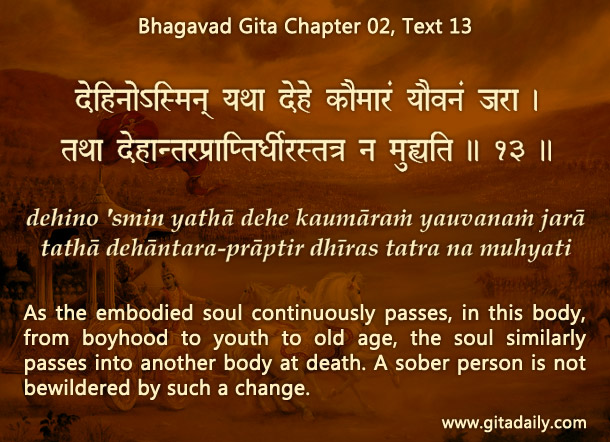Suppose we are looking at the ground level of a skyscraper building. If we look up, we may be either impressed or intimidated to see how tall the building is. Even if physically climbing up to the top of the skyscraper is impossible for us, still just beholding the top can stimulate the desire to get there and inspire us to find an elevator.
Our existence and even our identity are like a multi-level building. We are often stuck at the ground level, which is the physical level of reality; we usually crave and slave for sensual pleasures and hardly think of anything else. Sometimes, if someone tells us about higher levels of reality, and especially about the eternal spiritual level of reality, we often find such levels intellectually incomprehensible or practically inaccessible.
Still, even if we can’t elevate our consciousness to the spiritual level, we can at least expand our consciousness as a step forward in our spiritual growth. For example, if we find it difficult to realize that we are not our bodies, we can at least appreciate that we are something more than our bodies. Understanding we are not our bodies represents an elevation of our consciousness whereby we disidentify with our physical shells and identify with our spiritual cores, as the Bhagavad-gita (02.13) states. In contrast, appreciating that we are more than our bodies represents an expansion of our consciousness, whereby we see ourselves as meant for something more than sensuality.
The Gita provides us both systematic philosophical understanding to expand our consciousness and time-tested yogic processes for elevating our consciousness. By tapping into Gita wisdom at whatever level is presently possible for us, we can start our spiritual journey, either by the conceptual expansion of our consciousness or by its experiential elevation.
Think it over:
- What does elevating our consciousness mean?
- What does expanding our consciousness mean?
- How does the Gita provide us resources for both elevating and expanding our consciousness?
***
02.13: As the embodied soul continuously passes, in this body, from boyhood to youth to old age, the soul similarly passes into another body at death. A sober person is not bewildered by such a change.
To know more about this verse, please click on the image
Explanation of article:
Podcast:


Leave A Comment